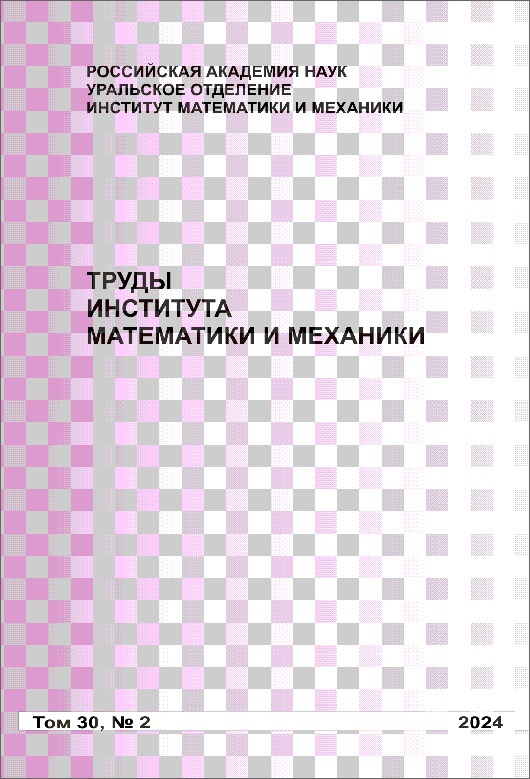|
|
Trudy Instituta Matematiki i Mekhaniki UrO RAN, 2011, Volume 17, Number 2, Pages 105–124
(Mi timm701)
|
 |
|
 |
This article is cited in 3 scientific papers (total in 3 papers)
Numerical encoding of sampled controls and an approximation metric criterion for the solvability of an aiming game problem
A. V. Kryazhimskiiab
a Steklov Mathematical Institute, Russian Academy of Sciences, Moscow
b International Institute for Applied Systems Analysis, Laxenburg, Austria
Abstract:
A game problem of guaranteed aiming in the class of positional strategies is considered for a conflict controlled system with affine scalar controls in the equation of the system. Simplified sampled analogs of quasi-strategies, i.e., of nonanticipating program reactions of the first player to the controls of the second player, are introduced. The nonanticipating property is characterized in metric terms with the use of numerical images (codes) of argument controls and reaction controls. A class of nonanticipating transformations is introduced that is approximately equivalent by the criterion of the solvability of the game problem to the class of positional strategies. The elements of this class as transformations of the numerical codes of controls are characterized by the 1-Lipschitz property. A numerical algorithm for checking the solvability of the problem in this class is described. The complexity order of the algorithm is close to that of the approximation variant of the classical program construction.
Keywords:
positional differential games, quasi-strategies, numerical methods.
Received: 01.03.2011
Citation:
A. V. Kryazhimskii, “Numerical encoding of sampled controls and an approximation metric criterion for the solvability of an aiming game problem”, Trudy Inst. Mat. i Mekh. UrO RAN, 17, no. 2, 2011, 105–124; Proc. Steklov Inst. Math. (Suppl.), 276, suppl. 1 (2012), S106–S125
Linking options:
https://www.mathnet.ru/eng/timm701 https://www.mathnet.ru/eng/timm/v17/i2/p105
|

| Statistics & downloads: |
| Abstract page: | 406 | | Full-text PDF : | 104 | | References: | 79 | | First page: | 20 |
|




 Contact us:
Contact us: Terms of Use
Terms of Use
 Registration to the website
Registration to the website Logotypes
Logotypes








 Citation in format
Citation in format 
